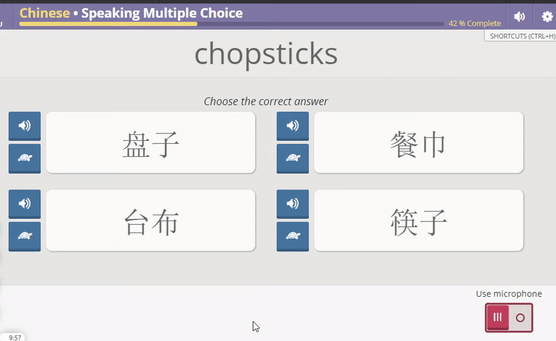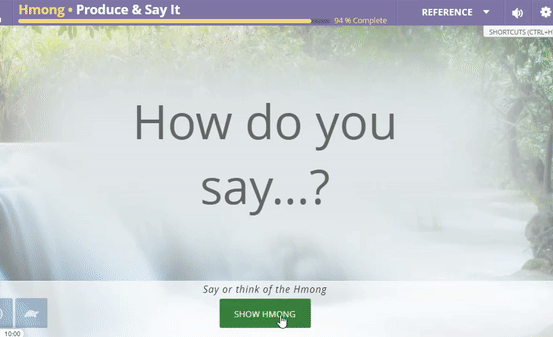Do online language courses really prepare you to speak the language? Posted by Transparent Language on Jul 26, 2017 in Archived Posts
There’s a fine line between teaching cookie cutter language content and whimsical phrases that are memorable but impractical. Our content team works hard to find the middle ground.
We offer more than 100 languages at Transparent Language, many of them roughly following a similar template of content. But the first step of any new language is to review that template with a linguist. Rather than mass producing identical language courses with irrelevant content or randomly stringing words together to make it “fun”, our content team pays particular attention to the usefulness of each word or phrase in the context of the language and its culture.
Most of the languages provided in Transparent Language Online include a 10+ unit Essentials course to prepare you for your first trip abroad in the language. For common languages like Italian or Mandarin Chinese, we teach similar content with nearly imperceptible changes (no need for chopsticks in Italian, right?)

For minority and less common languages, the adjustments are more significant. While creating our Hmong Essentials course this year, our content team realized the original story line would not be practical for someone learning Hmong and going to Laos, where the language is spoken, but not recognized as an official language.
The project lead, Lori, worked with a Hmong linguist to rearrange the story: “The goal of this template was to make the phrases applicable in real life situations a traveler would encounter. For example, Hmong would not be used in official interactions, such as at the bank or buying a ticket. For those direct interactions, you would need to know Lao. Since the learner still needs to be able to handle these situations, we approached it from the angle of the learner asking a Hmong and Lao speaking host about these topics.”

Lessons about “Staying at a Hotel” and “Eating Out” were adapted to “Staying with a Host” and “Having a Meal with a Host”, respectively. Typical phrases connected to these situations that did not make sense were removed or replaced with new content that better reflects the Hmong community and lifestyle.
Of course, the concept of relevancy matters for all languages, big or small. Rote responses may have little use in the context of your language or culture. Whimsical sentences may be fun and memorable, but they’re not practical. If a course is teaching you how to order a hamburger in Hindi (hint: they don’t eat beef in most regions of the country) or utter a phrase like “I wanted to eat a child, but chose to eat an egg” (we can’t make this stuff up)—think twice about whether that course will help you reach your goals.
If you’re just learning for fun, we applaud that. But if you’re serious about using the language you’re learning—while traveling, at work, or with your family—remember that one template does not fit all.
Find a library near you that offers Transparent Language Online. None close by? Print this info card and bring it to your local librarians to let them know you’re interested, or sign up for the free trial!

Build vocabulary, practice pronunciation, and more with Transparent Language Online. Available anytime, anywhere, on any device.




Comments:
Nematullah:
I would like to join advance english language
ali:
I am a young boy who is very interested in studying languages
Kurt:
Duolingo can be like that sometimes. An example was in Japanese (and I think Dutch as well, but I’ll say only the Japanese sentence): すみません、りんごです。
It means, “Excuse me, I am an apple.” Many comments that followed were about the absurdity and thus the hilariousness of that statement.